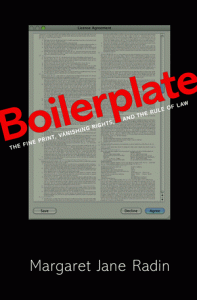For one, you should. Here are two fantastic reasons why:
- The only thing that stays the same is everything changes. How old is your boiler plate? If you are still using boiler plate from the 90’s it’s too old. But, some faux pas are harder to detect. If it is five years old it may or may not be good. You do not need to update boilerplate as you do the substantive law because it is not likely the standard of review will change. With that said, court rules are occasionally re-numbered and you do not want to cite to the wrong rule. Often an extra sub part is added. The Rules of Appellate Procedure are also periodically re-numbered. The judge or the clerk reading your brief will probably be able to tell what you meant, but will make a mental note about your credibility.
- Don’t be a loser. Whenever possible, you should use boilerplate language that came from a case whose outcome supports your position. When you use language from a case that does not support your position the reader will automatically think of your case as a loser. They may not do it on purpose, but that thought may be in the back of their mind when reading the rest of your brief. That is not what you want your reader to think before they have even read your argument. So, if there is recent authority supporting your case, replace your losing boilerplate with a winner.
